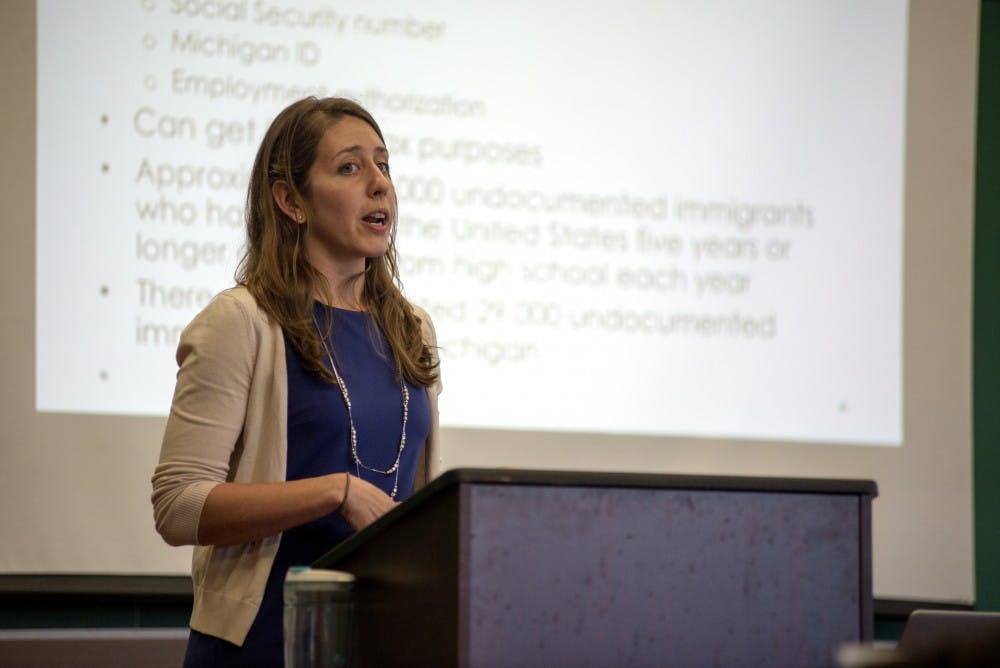A small group of graduate students studying social work hosted an event Monday to discuss the barriers immigrants face in education upon their arrival to the United States.
The students who created the event included Barry Lewis, Jessica Solano and Mallory Trumble.
The goal is to build awareness to the factors that impede students of various national origins when they try to receive an education in this country, the students said.
The event showcased three speakers from various fields of study and each provided input to the cultural difficulties facing students of different national origin.
Anna Hill is an attorney at the Michigan Immigrant Rights Center and works with many Michigan immigrants who possibly face civil rights violations. A few of these can be seen in education, she said.
She said it is important to note these individuals who do not have documented citizenship should be referred to as “undocumented citizens” as opposed to “illegals.”
Since immigration is an issue of civil law, and not criminal law, it would be improper to label these individuals as “illegal.”
Hill set the legal framework for the difficulties posed to these undocumented students in regards to education.
Two particular federal cases are very important to keep in mind, she said, referring to the Civil Rights Act, 1964, as well as a Supreme Court case Plyler v. Doe.
The former is a federal statute preventing discrimination against any individuals based on race, gender or country of origin while the latter details no student may be denied a basic education because of their immigration status.
While the Civil Rights Act doesn’t explicitly refer to undocumented immigrants, they may be interpreted as being grouped under those of different national origin, preventing discrimination, Hill said.
Hill then described several examples where her legal team defended the civil rights of these undocumented immigrants.
One such example included an instance when a relative was visiting an injured member of the family in the United States and was accompanied by young children.
Because of their undocumented status, and under the humanitarian clause, the U.S. Border Patrol allowed the woman and three children into the country provided the children did not attend school.
However, this is a violation of decision rendered in the Supreme Court Decision in Plyler v Doe.
In addition to instances like these, Hill paid mention to students being denied federal aid, or even general admission, to U.S. universities based on immigration status.
Academic Success Coordinator at Lansing Community College Santos Gutierrez said this is fairly normal because the culture of many immigrant communities is not conducive to contemporary universities.
Concepts such as FAFSA, applications and American collegiate social life are often foreign to these individuals, he said.
Some undocumented students are even charged the international tuition rate, which is almost three times the amount of other students, Gutierrez said.
Gutierrez also drew attention to the optimistic changing culture in immigrant communities because of genuine interest to attend college. He told a story of his niece, at 5 years old, expressing interest to attend college.
Support student media!
Please consider donating to The State News and help fund the future of journalism.
“They want someone to believe in them,” Gutierrez said, “We want the American Dream.”
Discussion
Share and discuss “Graduate students host forum on barriers faced by immigrants ” on social media.







